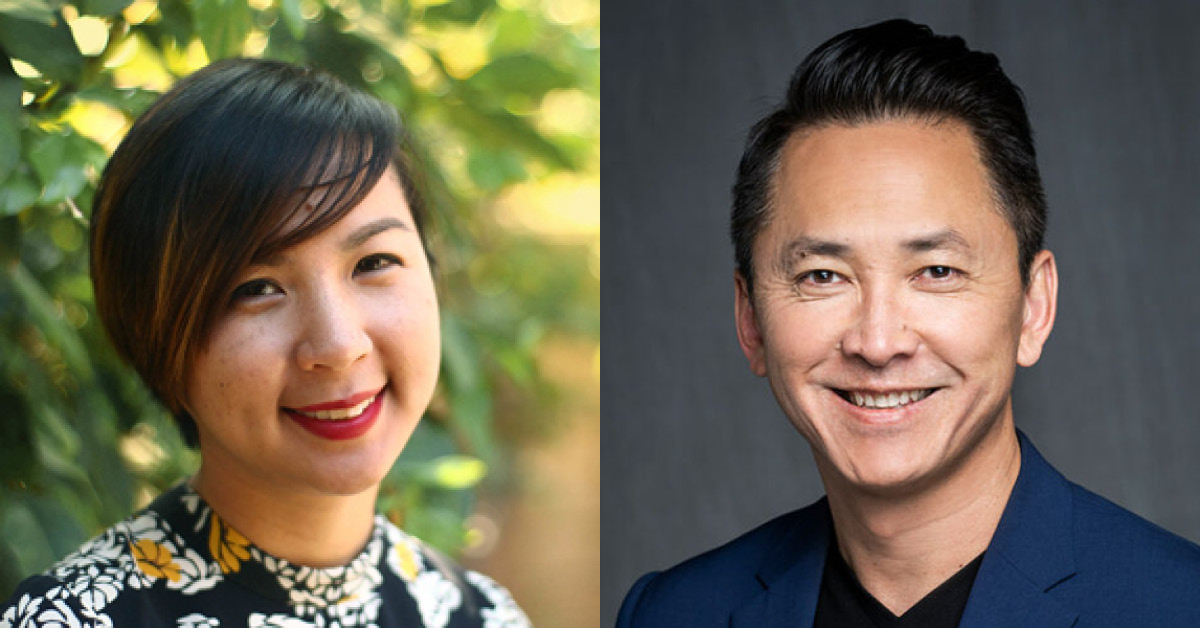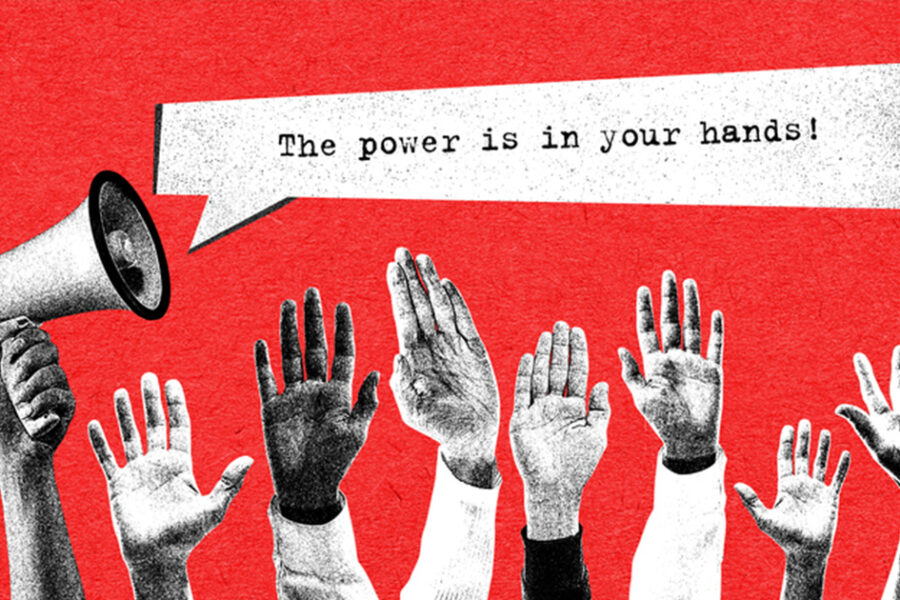The Antioch MFA in Creative Writing recently hosted a conversation about democracy, war, and identity between the writer and scholar Viet Thanh Nguyen—author of the Pulitzer Prize-winning The Sympathizer—and the poet Cathy Linh Che, who serves as Core Faculty in the MFA. They both read from their work and then had a conversation about the intersections of literature, war, and politics through their identities as Vietnamese American writers. The event, “Democracy, War, and Identity,” occurred virtually on September 5 as part of the Antioch Works for Democracy initiative. This conversation (available to watch on the Antioch YouTube channel) provided a critical opportunity for discussion and reflection about imperialism, cultural erasure, and the role of artists, through the particular lens of Vietnamese American immigration and literature.
Both panelists began the conversation by reading excerpts from recent work. Nyugen read two passages from his memoir, A Man of Two Faces. Both passages focused on the story and experiences of his mother. The book, he explained, transcends the idea of a typical memoir, infusing historical and generational traumas within his own family and their wider experience as Vietnamese immigrants. One evocative line that Nyguen read was, “People like Ma, who will not be remembered by history, are also a part of history…drafted as reluctant players in horrific wars.”
Che read three poems from her forthcoming spring 2025 collection, Becoming Ghost. These poems also paid homage to the writer’s parents. In this case, they were about Che’s parents’ experiences as Vietnam War refugees—and specifically their roles as uncredited extras in Francis Ford Coppola’s 1974 film Apocalypse Now. In the poem “Zombie Apocalypse Now,” Che writes, “We didn’t have lines./We were extras./We survived a war only to be cast in the margins of our own story.”
Nguyen said, after these opening readings, “I think there’s a faith that both of us have in the power of the literary arts, that this still matters in a democracy where we’re allowed to acknowledge or we’ve seized the opportunity to demand that race should be recognized and that be voices be heard, that literature matters in mounting rebuttal.”
As they got into their conversation, Che and Nyugen both emphasized how the film, Apocalypse Now, took Vietnamese voices out of their own narrative, instead heavily focusing on American perspectives of the Vietnam War. Nyugen noted that he once went through all the film credits, only to find that every American extra received credit, even if they had no lines, while Vietnamese extras were left uncredited. Nguyen’s Pulitzer-winning novel The Sympathizer, which was recently adapted into an HBO mini-series directed by Park Chan-wook, includes as a major plot point its characters’ participation as extras in an Apocalypse Now-like film.
Che shared that her parents knew of another extra in the film—someone who had been a refugee in the same prison camp—who had one line and still remained uncredited. For both writers, the unnamed Vietnamese voices in Apocalypse Now represented a powerful example of the ways that imperialism and cultural erasure can inhere in art and cinema. For both authors, taking up literature themselves represented an avenue to resist such erasure, challenging the dominant narrative and telling other stories.
For Lisa Locascio Nighthawk, the Chair of the MFA, who proposed the event, gave the introductions, and moderated a Q&A at the end, the conversation lived up to her hopes. “We wanted to showcase our wonderful new faculty member Cathy Linh Che, and with her work’s connection to portrayals of the American War in Vietnam and its long afterlife in the lives of Vietnamese Americans, it made perfect sense to invite Pulitzer Prize winner Viet Thanh Nguyen to be in conversation with Cathy about their experiences as Vietnamese American writers, educators, and immigrants,” she explains. She says that she was more than pleased with how the conversation unfolded. “I was so happy to see Antioch host such an erudite and vital literary event.”
Towards the end of the discussion, Nyugen also talked about the role of capitalism and the indifference towards art and literature that pervades much of American society. “We live in a crassly materialistic society,” he said. “And we’re constantly being told that literature doesn’t matter. At the same time, this mechanism is happening around the commodification of culture.” But he pointed out that this opinion doesn’t seem to explain all the ways that people interact with literature in our society. “Literature is not supposed to be a commodity, and no one cares, yet we’re living in an era of book banning and book burning. So in fact, people do care.”
The panelists also discussed the use of literature and art as a form of protest, particularly in spaces where democracy is threatened and under attack. Che described how poetry provided “a voice of protest, a voice of clarity, and a voice of movement” for the early Asian-American movement, giving artists a platform to speak out on social inequities, unrest, and create their own narratives outside the realm of oppression and political silencing. And she discussed the way that this reclaiming and speaking out can be both a pleasure and a duty. “So most poets do it because they love it. They do it because they can’t do anything else. They’re drawn to it. There’s something primal about poetry,” she said. “There’s something connected to the spirit that really feels, it feels like a necessary act that doesn’t necessarily bring you great fame or reward at the end.”
– – –
You can watch a full recording of the event on Antioch’s YouTube page.





